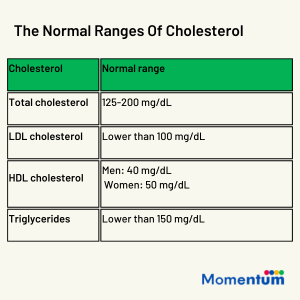There are often queries concerning the consumption of alcohol. Some schools of thoughts are for its consumption while some are against its consumption. This begs the question; does alcohol impair heart health? When taken moderately, alcohol may be beneficial to our health. Some studies have shown that when taken moderately, alcohol may be beneficial to health and heart health.
The following benefits are attributed to the moderate ingestion of alcohol:
- reduce the risk of developing – or dying from – heart disease
- and reduce one’s risk of ischemic stroke. Ischemic stroke occurs when there is a narrowing – in extreme cases, a blockage – of the arteries to the brain, causing severely reduced blood flow; and
- reducing the risk of diabetes and hypertension.
However, we can have these benefits by eating a healthy diet and engaging in physical activities and other healthy lifestyle measures. Some argue that moderate intake of alcohol is risk-free. Unfortunately, that’s not the case. A light drinker who doesn’t have more than one drink a day is still vulnerable to some cancers, like esophageal cancer.
Other long-term effects of alcohol include:
- Heart diseases
- Obesity (and your big stomach)
- Type 2 diabetes
- Cancers of the mouth, throat, colon, breast, and liver [3]
- Risk of birth defects
- Depression[4]
To answer the question – Does alcohol impair your general health? Actually, yes, it does! And in case you are wondering, here is why your cholesterol level is so important:
What is cholesterol?
Cholesterol is a natural component of all the cells in the body. It is a waxy and fat-like substance. Despite several controversies, cholesterol plays an essential part in the body; in the production of hormones and bile, anabolism of vitamin D, giving the structure of the cell and aiding fat digestion. Health experts have revealed that excess cholesterol contributes to health complications, increasing the risk of heart disease. For this reason, keeping our cholesterol levels in check is crucial.
Types of cholesterol
There are two types of cholesterol, one of which is considered ‘bad’ – the LDLs, and the other ‘good’ – the HDLs.
- Low-Density Lipoproteins (LDL): This ‘bad’ cholesterol is present in the blood and is highly associated with Atherosclerosis – a buildup of cholesterol in the arterial walls. This condition hardens and narrows the blood vessels, restricting blood flow to other parts of the body. Atherosclerosis is a risk factor for Coronary Heart diseases and stroke.
- High-Density Lipoproteins (HDL): HDL is the ‘good’ cholesterol, unlike LDL. It protects our heart health by absorbing cholesterol from the blood and body tissues and transporting it to the liver to be removed or recycled. This action reduces the risk of heart disease and stroke [7] [8].
What ranges of Cholesterol levels are healthy?
Having a high cholesterol level is not healthy, the same goes for a low cholesterol level. Below is a table showing the normal range of cholesterol levels in adults above 20 years.

NOTE- Reference ranges may differ from laboratory to laboratory. Lower values for triglycerides are indicated in certain conditions like Diabetes.
Alcohol intake also affects cholesterol levels, positively and negatively [5] [6]. Let’s find out how:
The Effect of Alcohol on our Cholesterol levels
Alcohol does not contain cholesterol, so that makes us wonder why it affects our cholesterol levels. An organ in the body links alcohol to cholesterol levels. That same organ that produces cholesterol also detoxifies and metabolizes alcohol. And yes, you guessed right- that organ is the liver. The liver breaks down alcohol to form triglycerides and LDLs – the ‘bad’ cholesterol. Studies have shown that excessive alcohol intake leads to a combination of high triglyceride and LDLs levels and low HDLs levels in the blood, making one prone to heart diseases. Some alcoholic drinks contain sugar which raises your triglyceride levels. When your triglyceride level becomes too high, it builds up in the liver. This build-up often leads to liver damage, including fatty liver disease and other damages to the liver.
On the other hand, research shows that light to moderate intake of alcohol increases HDL levels. Another research indicates that taking about half a cup (4 ounces) of red wine per day can be associated with heart health – including increasing HDL levels.
How much Alcohol should you take?
Now that you know the effects of alcohol on your cholesterol level and other aspects of your health, you’d agree that it is important to reduce your alcohol intake or even become sober. Going off alcohol is not rocket science, but we can start from somewhere – which is gradually reducing your intake. The most recent guideline on alcohol intake suggest same unit of alcohol for both males and females which is 14 IU per week.
Therefore, females metabolize alcohol faster than males – even though not as efficiently – increasing the absorptive rate of alcohol in their bloodstream. For this reason, alcohol intake recommendations differ by sex.
The current recommendations for moderate alcohol intake are;
- For females: One standard drink per day or less.
- For males: Two standard drinks per day or less. [9] [10]
Bottom Line
Even though we react to alcohol differently, the aim is to keep our cholesterol levels in check to avoid chronic health conditions. If you are concerned about your alcohol intake and cholesterol level, I’ll advise you to seek proper medical advice from a healthcare professional as soon as possible. Prevention, they say, is better than cure!















No Comments
Leave a comment Cancel